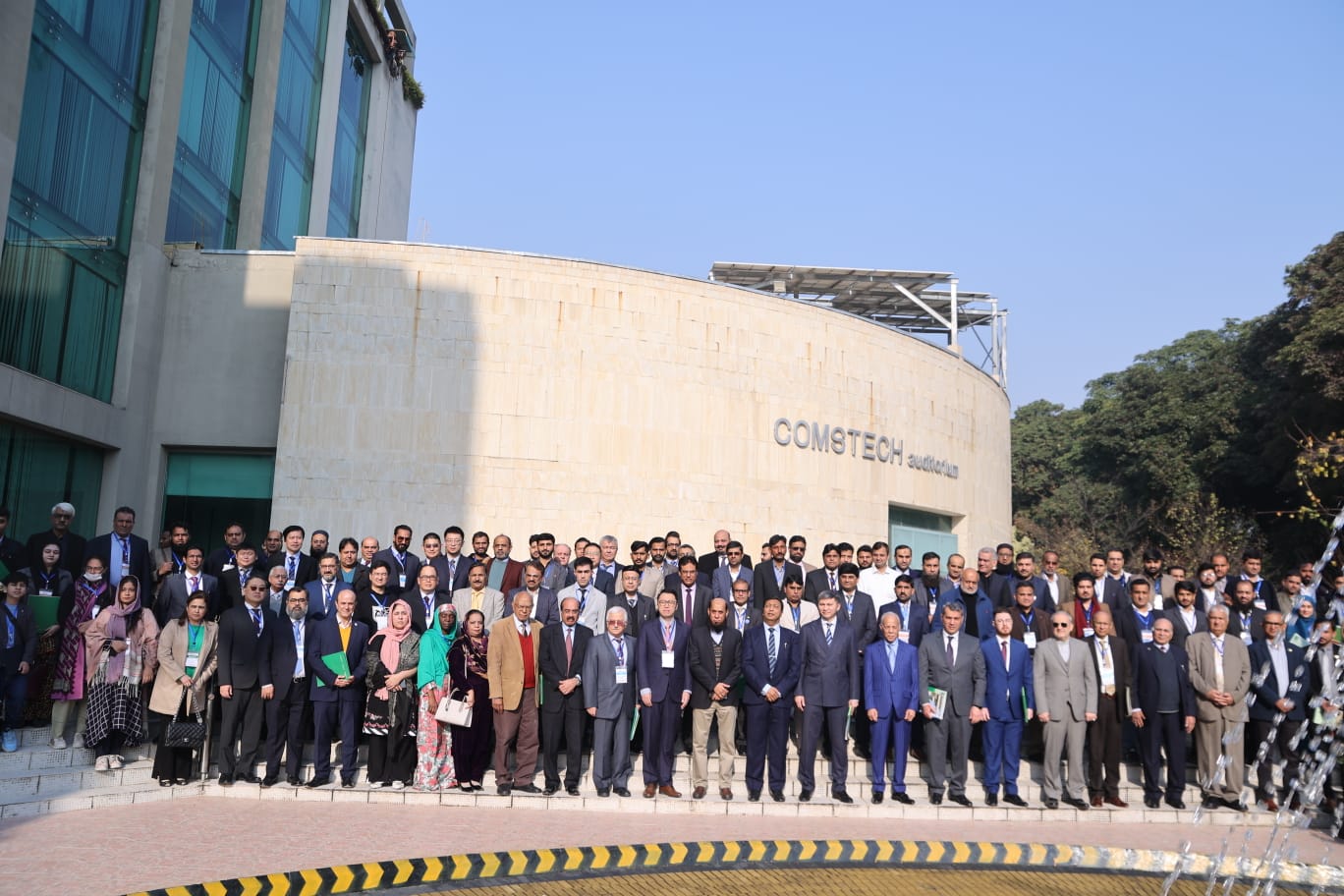 17 December 2024, Islamabad(Kamran Raja) : The Secretariat of the Organization of Islamic Cooperation’s (OIC) Standing Committee on Scientific and Technological Cooperation (COMSTECH) hosted a two-day international workshop on the “Cybersecurity Landscape in OIC Countries: Issues and Prospects” at its headquarters in Islamabad. The workshop, which began on Tuesday, was jointly organized by COMSTECH and Huawei Technologies Pakistan Pvt. Ltd., focusing on addressing the critical challenges and opportunities in the realm of cybersecurity across the OIC member countries.
17 December 2024, Islamabad(Kamran Raja) : The Secretariat of the Organization of Islamic Cooperation’s (OIC) Standing Committee on Scientific and Technological Cooperation (COMSTECH) hosted a two-day international workshop on the “Cybersecurity Landscape in OIC Countries: Issues and Prospects” at its headquarters in Islamabad. The workshop, which began on Tuesday, was jointly organized by COMSTECH and Huawei Technologies Pakistan Pvt. Ltd., focusing on addressing the critical challenges and opportunities in the realm of cybersecurity across the OIC member countries.
The event attracted a distinguished lineup of cybersecurity experts from various OIC nations, including Mr. Fazlan Abdullah, Acting Head of the Pre-Emptive Technology & Services Division at Cybersecurity Malaysia; Mr. Fakhri Jafarov, Head of the Malware Research Laboratory, Azerbaijan Government CERT; Mr. Askar Dyussekeyev of KZ-CERT, Kazakhstan; Prof. İbrahim Sogukpınar, Professor of Cybersecurity at Gebze Technical University, Turkiye, and Ms. Zareefa S. Mustafa, Manager of the Cybersecurity Department at Nigeria’s National Information Technology Development Agency.
Addressing the inaugural ceremony, Chairman Pakistan Telecommunication Authority, Major General (Rtd) Hafeez-ur- Rehman emphasized the importance of joint cyber security initiatives at the national and international levels. Highlighting the importance of promoting international cooperation and highlighting the commitment of Pakistan and PTA for a secure digital future.
In his address ,Prof. Dr. M. Iqbal Choudhary, Coordinator General of COMSTECH, proposed an OIC Ministerial conference on cyber security which will help all OIC countries to establish an experience sharing platform to build a good defence system for Cyber space which will benefit all OIC countries and other part of the world while sharing Sharing various ongoing and future initiatives of COMSTECH, he also announced to organize two global cyber security forums in Central Asia and Africa in collaboration with Huawei and OIC-CERT, focusing on capacity building and fostering Linkages
Mr. Sun Xiaofei, CEO of Huawei Technologies Pakistan, discussed the essential role of technology companies in advancing cybersecurity initiatives and enhancing digital resilience. He reiterated Huawei’s commitment to supporting OIC countries as they work to tackle cybersecurity challenges and protect their digital economies. He said that being the technological leader in ICT, apart from investing in best advanced technologies Huawei is equally investing in securing the eco-system by keeping Cyber Security at the top of its priority, working with COMSTECH and OIC-CERT, we would like to help OIC countries to make policies and frameworks to implement cybersecurity framework using its cutting edge technology and experience around the globe” he added .
The workshop featured a series of discussions and panel sessions on key topics, including “5G Security & Privacy Protection: A Panoramic Overview of the Middle East and Central Asia Region,” “Industry Best Practices: Securing Corporate Networks and Data Protection Strategies for SMEs,” and “The Role of Cybersecurity in Digital Transformation.” Other notable sessions included presentations on cybersecurity initiatives by OIC member states, such as the efforts of OIC-CERT to protect the OIC member states and contributions from Azerbaijan, Pakistan, Malaysia, Nigeria, and Turkey in shaping their national cybersecurity landscapes.
Experts also explored strategies to combat modern cyber threats, strengthen national cybersecurity policies, and enhance workforce development through training programs and certifications to address the growing cybersecurity skills gap.
Over 300 participants from a diverse range of countries (physical and online) are attending the workshop, which is expected to generate valuable outcomes and deeper collaboration in advancing cybersecurity efforts across OIC nations.
This workshop marks a significant milestone towards securing a safer digital future for OIC member countries as they unite to address the ever-evolving challenges of cybersecurity in a rapidly digitalizing world.